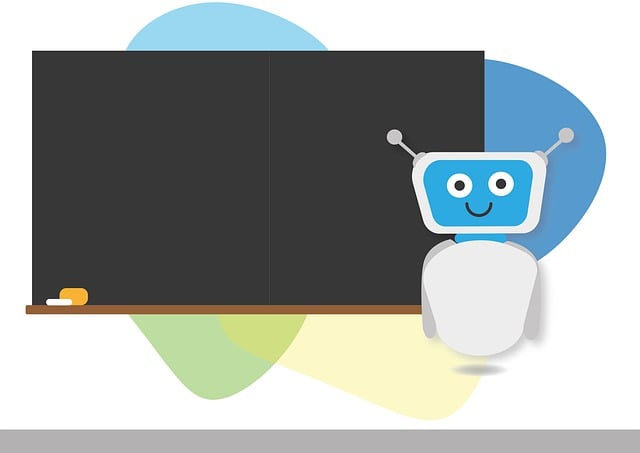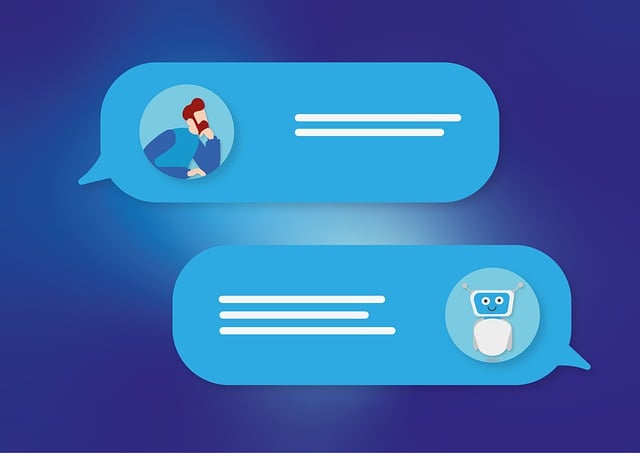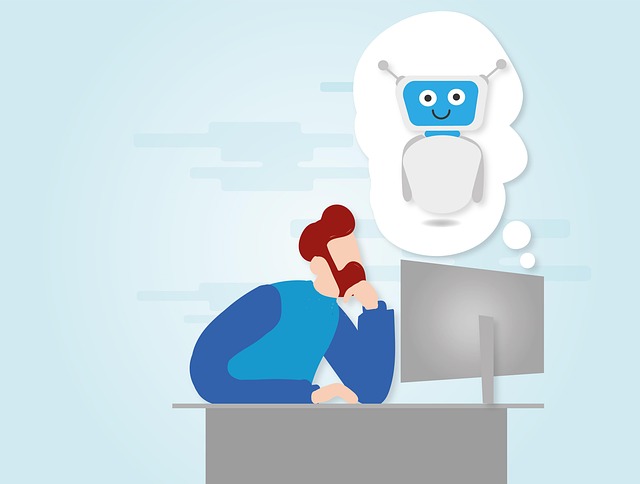AI chatbots and assistants are transforming business-customer interactions by offering 24/7 personalized responses and handling tasks like FAQs and product recommendations based on user history. Trained on vast datasets, these tools continuously learn to provide tailored solutions, improving satisfaction levels. To optimize strategies, businesses should leverage data analytics, implement dynamic content delivery, foster human-AI collaboration for complex queries, and regularly update AI models. The future of personalized engagement involves advanced chatbots understanding and mimicking human emotions, requiring marketers to integrate AI seamlessly throughout the customer journey for enhanced satisfaction, loyalty, and competitive advantage.
In today’s digital landscape, AI-powered personalization is transforming customer interactions. From sophisticated AI chatbots and assistants to enhanced customer service experiences, businesses are leveraging these tools to deliver tailored solutions. This article delves into the core concepts of AI-driven personalization, exploring its benefits and use cases in customer service. We also provide strategic best practices for effective interaction tailoring and discuss future implications as AI personalization continues to evolve. Additionally, keywords like ‘AI chatbot’ and ‘AI assistant’ are seamlessly integrated throughout to optimize search visibility.
- Understanding AI-Powered Personalization: The Role of AI Chatbots and Assistants
- Enhancing Customer Service with AI: Benefits and Use Cases
- Strategies for Effective Tailoring Interactions: Best Practices
- Future Implications: Navigating the Evolution of AI Personalization in Customer Engagement
Understanding AI-Powered Personalization: The Role of AI Chatbots and Assistants

AI-powered personalization has transformed the way businesses interact with their customers, offering a level of tailored experience that was once unimaginable. At the forefront of this revolution are AI chatbots and assistants, which act as digital intermediaries between brands and consumers. These intelligent agents leverage natural language processing (NLP) to understand user queries, preferences, and behaviors, enabling them to provide personalized responses and recommendations in real-time.
AI chatbots and assistants enhance customer service by offering 24/7 availability, instant support, and customized interactions. They can handle a wide range of tasks, from answering frequently asked questions to providing product suggestions based on individual shopping histories. This not only improves user satisfaction but also allows human customer service representatives to focus on more complex issues, ultimately leading to increased efficiency and cost savings for businesses.
Enhancing Customer Service with AI: Benefits and Use Cases

In today’s digital age, enhancing customer service with AI is transforming the way businesses interact with their clients. AI chatbots and assistants are revolutionizing support systems by providing instant, personalized responses to customer inquiries. These intelligent agents can handle a wide range of tasks, from answering frequently asked questions to resolving complex issues, thereby improving overall satisfaction levels.
One of the key benefits of implementing AI in customer service is the ability to offer 24/7 availability. AI assistants never tire and can manage multiple conversations simultaneously, ensuring that customers receive prompt attention regardless of the time zone or holiday. Moreover, these systems can be trained on vast amounts of data, enabling them to learn from every interaction, improve their accuracy over time, and provide tailored solutions, creating a more engaging and efficient customer service experience.
Strategies for Effective Tailoring Interactions: Best Practices

To effectively tailor interactions with AI-powered personalization, businesses should focus on several key strategies and best practices. Firstly, leverage data analytics to gain deep insights into user preferences, behaviors, and pain points. This information forms the foundation for creating highly targeted, contextually relevant responses that resonate with individual users. Secondly, implement dynamic content delivery mechanisms within your AI chatbot or assistant platforms, ensuring personalized messages evolve based on continuous user engagement.
Additionally, foster a collaborative relationship between human agents and AI customer service tools. Human intervention can address complex queries or emotional situations where AI might struggle, while AI can handle routine tasks, expediting response times and enhancing overall customer satisfaction. Regularly update and retrain AI models to adapt to shifting market trends and user demands, ensuring they remain effective and relevant in delivering exceptional customer experiences.
Future Implications: Navigating the Evolution of AI Personalization in Customer Engagement

As AI continues to evolve and integrate into various aspects of our lives, the future implications for personalized customer engagement are immense. AI-powered chatbots and assistants will become increasingly sophisticated, capable of understanding nuanced human emotions and preferences. This evolution promises a seamless and tailored experience for customers, where interactions feel almost human-like. Businesses can leverage these advancements to build strong, lasting relationships with their clients.
The dynamic nature of AI personalization requires constant adaptation and innovation. Marketers and customer service professionals must stay agile, keeping up with the latest developments in natural language processing and machine learning. By embracing these changes, companies can future-proof their strategies, ensuring they remain competitive in a rapidly shifting digital landscape. This includes integrating AI into every touchpoint of the customer journey, from initial inquiries to post-purchase support, thereby enhancing satisfaction and fostering brand loyalty.
